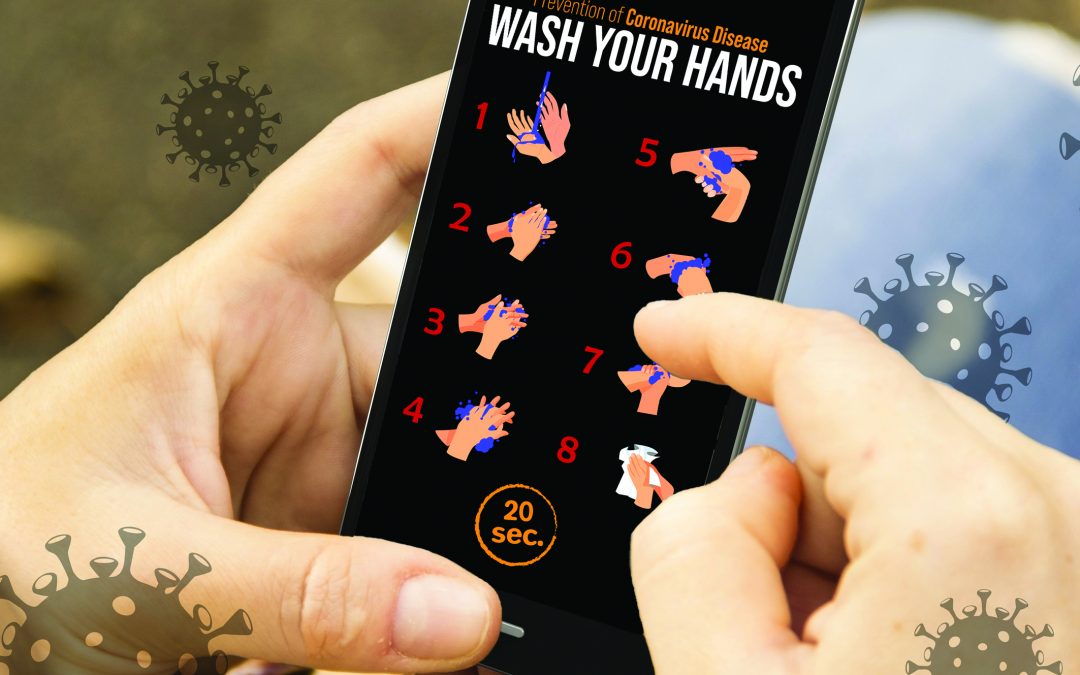By Berry Billingsley
Professor of Science Education
Barely a day goes by without another massive change to our everyday lives. It’s a scary time – for starters there’s the invisibility of the virus and uncertainty about how many people around us might be affected. There are also costs to our usual happy, freedom-loving lifestyles … and the worry about how people we love are coping and worse, how we can help if they fall ill.
Right now it doesn’t seem to be the moment for drawing attention to the curriculum and its value as a source of educational guidance on how to approach Big Questions. Fortunately young minds are always looking for new ideas and new ways to think. So as education always matters, here are some of the ways you can develop your own and another person’s insight and understanding during these challenging times.
The Big Question we will ask is, “How do we as individuals and as a society work together to tackle and overcome this challenge?”
Let’s start with science. We know that science – as a method of enquiry and as a source of knowledge – can help us. Science informs our thinking about every aspect of our lives today.
Why is that? Well, science can often give us a high level of certainty. That’s particularly true where we are drawing on scientific knowledge that is well established and coming up with ideas that are easy for scientific methods to test: Wash your hands often and with soap because we understand very well what happens when we engulf the virus with soap and use water to hasten it from our skin.
So stepping back, we can see this as a way to talk with students about what it means to work scientifically. Science begins with observations of the natural world and constructing ways to explain our observations. Science tests ideas by making predictions and carrying out systematic and objective observations….
We can also help our young people to appreciate that the solution that gets us all through this problem is not going to only be scientific – it will also call for our shared sense of humanity, humility, empathy, moral reasoning, common sense … the things that we as individuals can do uniquely and in our own situations.
To understand the power and limitations of science our students will need to appreciate that this is a ‘real world’ problem. To help them, you could talk about the power and limitations of mathematical models. Mathematics can help us to race through multiple scenarios using what we know about our situation here. It also gives us a way to communicate what we think is going on. In parallel we also learn by looking at what is happening in other countries and the outcomes of different approaches in real life
Our social norms are changing – who’d have thought it would look ok to have TV presenters keeping their distance from each other by sitting at either end of a sofa. We are all wondering what we will keep and what we will gladly lose on the other side of this massive global investigation and response. The TV shows are also opportunities to highlight that we are seeing experts from many disciplines in the media. Each discipline has its preferred set of questions and contribution to make. Scholars in all areas can speak to the value of openness and collaboration.
So to help those of us who are teaching – experienced or not – here are some learning objectives to use as a possible guide. There are practical activities and resources in the materials on our site:
- Science begins with observations of the natural world and constructing ways to explain our observations.
- Individuals and societies want to ask and investigate many different types of questions, including Big Questions.
- Different disciplines have different preferred questions, methods and norms of thought.
- Cross-disciplinary or ‘bridging questions’ can help learners to see how two different disciplines interpret and investigate the same question – and combine to give a bigger picture.

